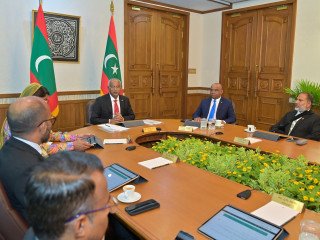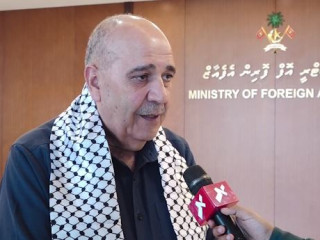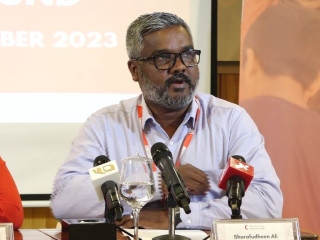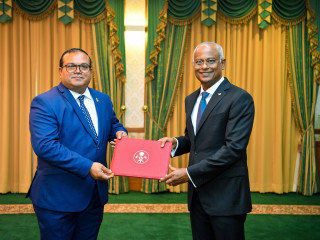Prosecution on Sunday requested that the trial of a man accused of holding a high-ranking position with a Pakistani terrorist group be held behind closed doors.
Mohamed Abdul Rahman, from Kendhikolhudhoo of Raa Atoll, was charged under anti-terror laws, which criminalizes leaving the Maldives to fight in conflicts abroad – unless sanctioned so by the state – and carries a jail sentence of between 17 to 20 years.
Rahman was arrested on his return in June 2016 from Wana of South Waziristan, part of Pakistan’s semi-autonomous tribal lands, and charged in December.
In the first hearing against him, prosecution alleged that after leaving to Pakistan in 2007 with his family for educational purposes, Rahman had, in 2009, fought alongside an insurgent group in Wana. On Sunday, he pleaded not guilty to the charges.
Rahman’s younger brother, Ibrahim Abdul Rahman, is facing manslaughter charges over the death of Hussein Razeen – who was found killed in a van in Sri Lanka, reportedly the result of a gang conflict.
The Foreign Ministry’s official figure on the flow of fighters to terrorist causes, at about 50 people, has been criticized as 'deceptively' low by the opposition. The Maldivian Democratic Party (MDP) had placed the number as high as 200, and also furhter criticized President Abdulla Yameen for using anti-terror laws against his 'political opponents, rather than terrorists'.
In 2002, authorities apprehended Ibrahim Fauzee in an Al-Qaeda safehouse and was subsequently taken to Quantanamo Bay before his eventual release into Maldivian custody. This highly publicized arrest sparked early international concern for growing ‘radicalism’ in the Maldives.
A Maldivian was also seen in a video circulated by Al-Qaeda in 2009 – Ali Jaleel, who was confirmed to have fought alongside pro-Taliban forces by his family through an interview.
Further, in 2010, authorities arrested nine Maldivians in Pakistan, and on February 17th two years later, a group of man, described to be ‘radicals’, stormed into the National Museum and vandalized archeological pieces with Hindu and Buddhist origins, namely a statue that was dated back to the 6th century.
Maldivians first saw a terrorist in attack in 2007, after a crude bomb went off in Malé City’s Sultan Park. The attack resulted in 16 arrests, and the controversial closure and demolition of a mosque in Himandhoo island, which was considered to be dwelling for those that had planned it. Three men were sentenced to over 15 years of imprisonment.





